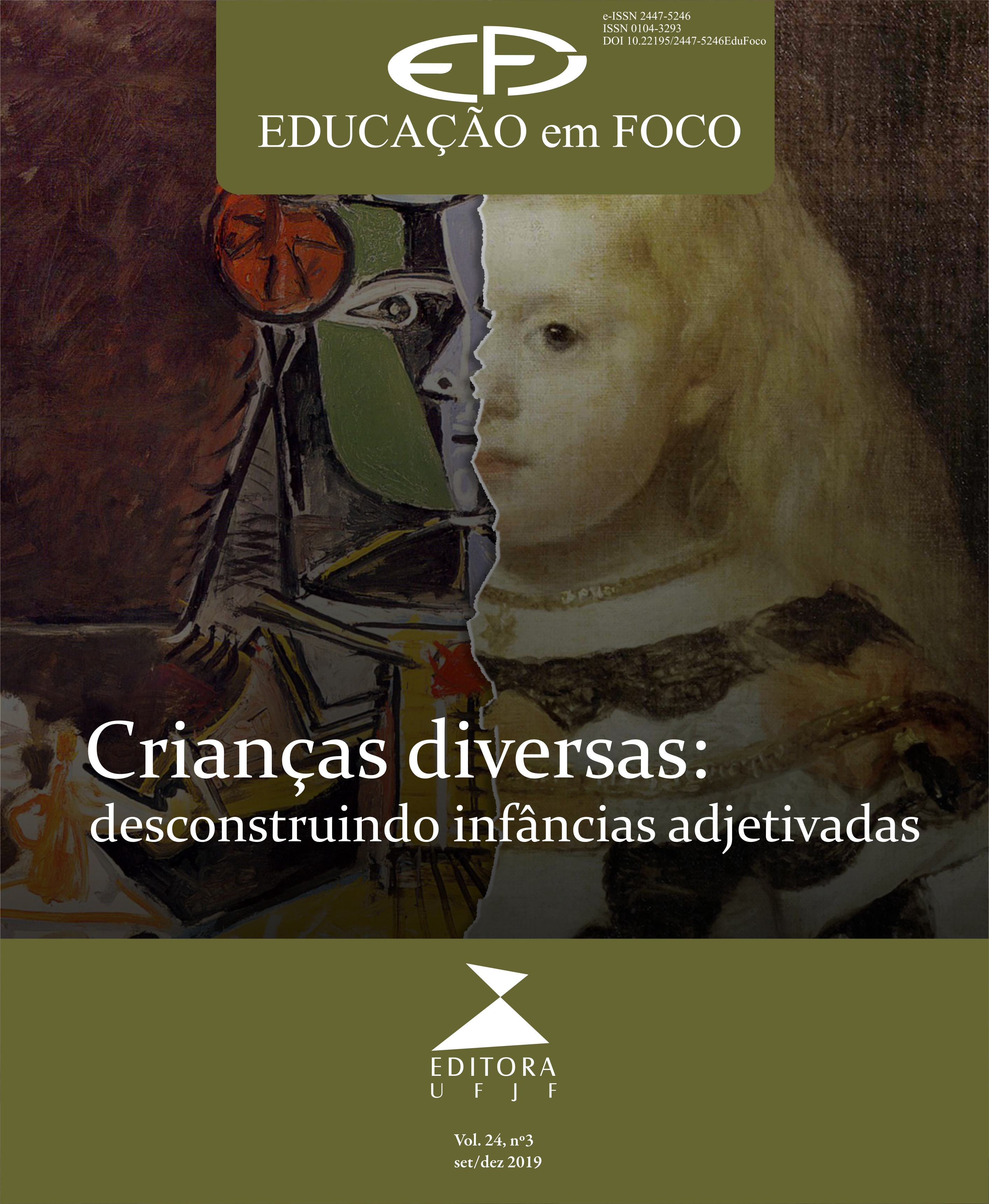Who is the naive, after all?
DOI:
https://doi.org/10.22195/2447-5246029155Abstract
The question of study about the enunciations of the children, about their experiences in the school institution while children that don’t learn, that are in a different places of the children that are said to be “normal”, for not having expected learning in an expected chronological time. It is in dialogue with one of this children that we tension the adjective naive, that when being used, takes off the person from the culture, taking their chance of been active, expressive and talkative as Bakhtin said, because when the children suffer from different classifications, they bring a counterword in their enunciations. They are enunciated in answers, because a force exists against the on that the children is put on and answers. There is a movement of tension between the place where they are put on: the non-learning one and the place where they answer with their enunciations that contradict innocence, purity or naivety, in the meaning of unknown.
Downloads
Downloads
Published
How to Cite
Issue
Section
License
Ao submeter um artigo à revista Educação em Foco e tê-lo aprovado, os autores concordam em ceder, sem remuneração, os seguintes direitos à Educação em Foco: os direitos de primeira publicação e a permissão para que Educação em Foco redistribua esse artigo e seus metadados aos serviços de indexação e referência que seus editores julguem apropriados.

















